Travel blog: En route to explore gender transformative initiatives in northeastern Brazil
26 OCTOBER 2023
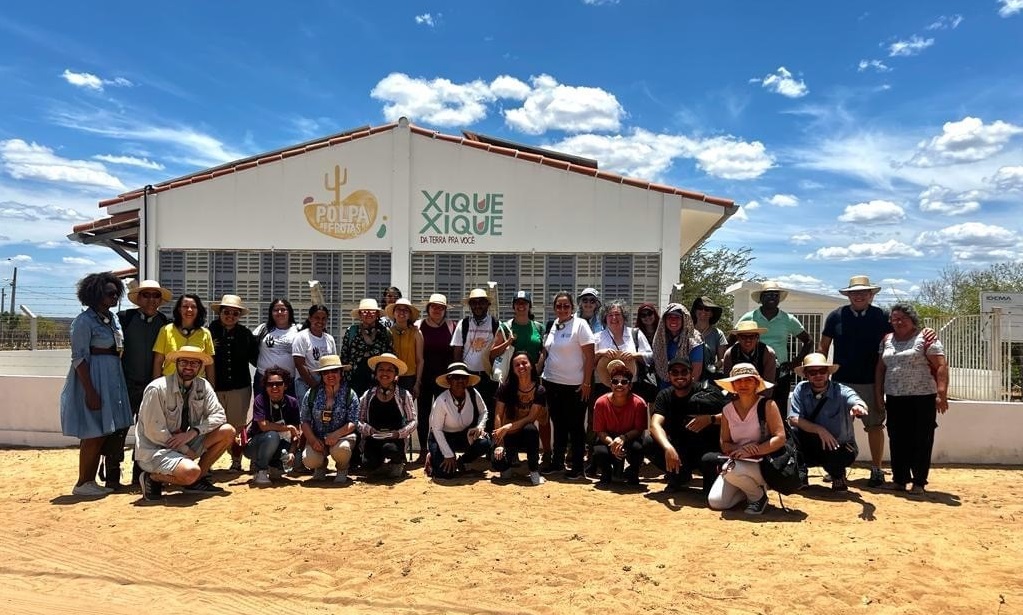 An intercultural group of 21 participants from 12 countries across Latin America, the Caribbean and Africa came together in northeastern Brazil from 16 to 22 October 2023 for a Learning Route aimed at exchanging experiences and strengthening capacities to integrate gender transformative approaches in rural development projects to improve food security, nutrition and sustainable agriculture.
An intercultural group of 21 participants from 12 countries across Latin America, the Caribbean and Africa came together in northeastern Brazil from 16 to 22 October 2023 for a Learning Route aimed at exchanging experiences and strengthening capacities to integrate gender transformative approaches in rural development projects to improve food security, nutrition and sustainable agriculture.
Brazil's northeastern region is characterized by a tropical semi-arid climate with dry land and long periods of drought. It has an estimated population of 57 million inhabitants and some of the highest rates of poverty and inequality in the country. Patriarchal influences have created significant gender gaps in areas such as access to land and political participation of rural women.
In this travel blog, we follow along as the “Learning Route on Gender Transformative Approaches to Achieving Food Security, Improved Nutrition and Sustainable Agriculture” meets innovative local host experiences where a range of different gender transformative methodologies have been applied. The exchange of knowledge between rural women and men, practitioners and decision-makers will be a key opportunity to take these good practices to other corners of the world and promote the adoption of gender transformative approaches for food security, improved nutrition and sustainable agriculture in different contexts.
Sunday, 15 October 2023
The Learning Route is officially underway! After arriving in the city of Fortaleza, the capital of the state of Ceará in northeastern Brazil, the group of 15 women and 6 men heads off to Rio Grande do Norte to start their week of exchanges. They will start by visiting grassroots initiatives in Mossoró, where rural women and men are changing paradigms by demonstrating that gender equality is not only possible, but indispensable for a prosperous rural future for all.
Monday, 16 October 2023
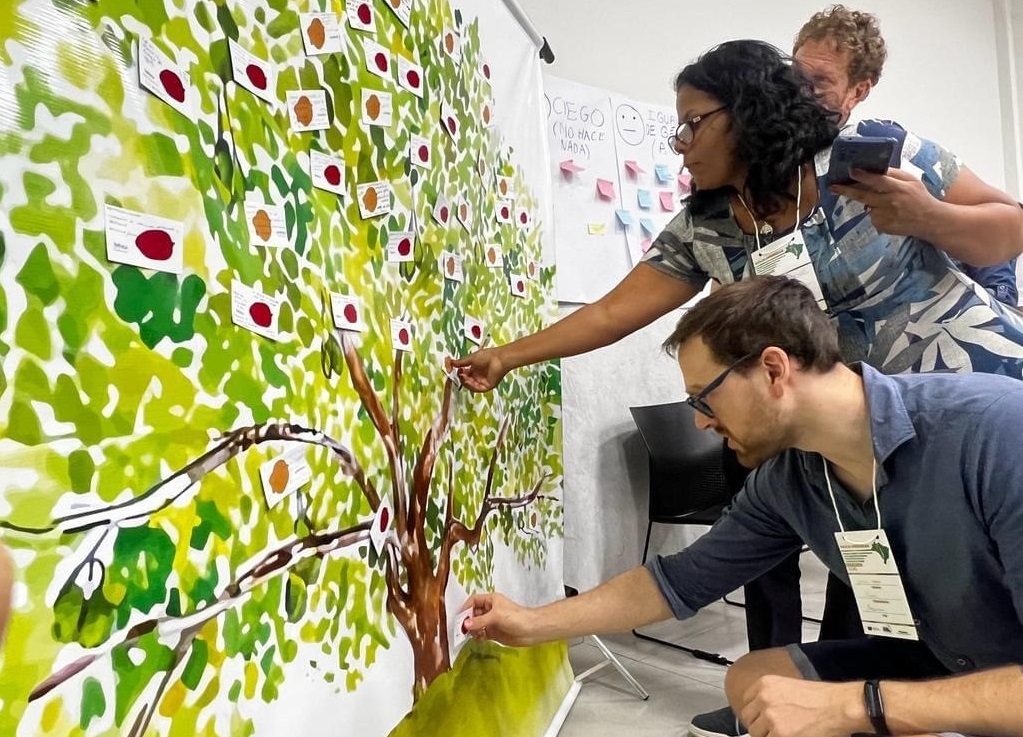
The group meets with representatives of Brazilian federal and regional governments, academia and civil society to introduce themselves and discuss issues such as gender responsive public policy, social development, and the effects of climate change and water scarcity on local agriculture and food security. During a so-called “Experience Fair”, participants present the challenges and opportunities they face in their own institutions and projects in reducing gender gaps.
Presentations emphasize the importance of valuing the knowledge and work of rural women, the participation of women in advocacy spaces and policy design, and the need for approaches based on the needs and traditional practices of local communities.
Tuesday, 17 October 2023
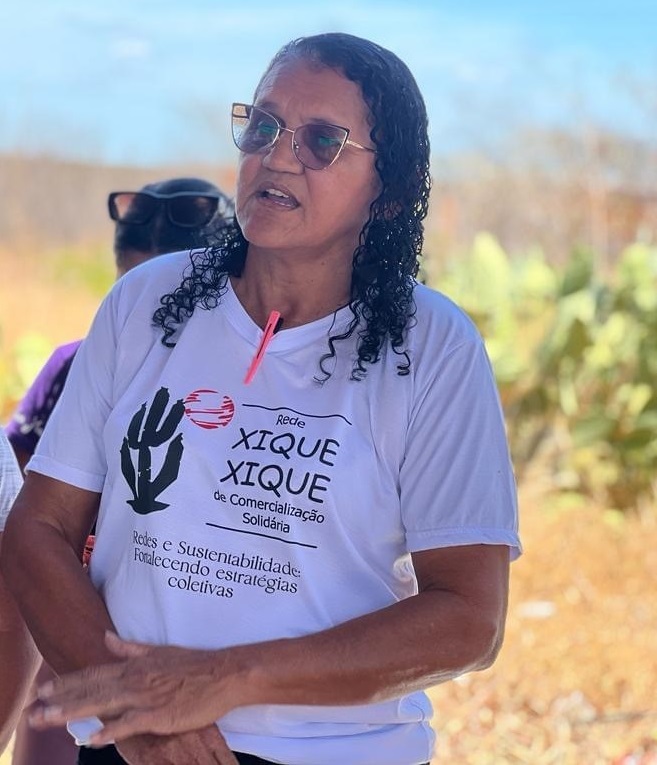
The first field visit takes place in Mulunguzinho where the delegation learn from the history of the Grupo de Mujeres Decididas a Vencer whose members use popular education, agroecology and solidarity economy to transform their lives and those of their families.
Almost 30 years ago, a group of women sought to gain economic autonomy through agriculture. Thanks to the support of the Centro Feminista 8 de Março, they started out with a community garden of organic vegetables and later diversified into beekeeping and fruit processing, thereby fostering the protection of their rights and their ability to influence the community and the family.
Today, the women are recognized for their role in producing and contributing to the family economy. They actively participate in community assemblies and also share household responsibilities with their partners to a greater degree.
In 2003, they created the Rede Xique Xique, an association aimed at selling their products. Made up of 300 farming families from Brazil’s semi-arid region, the network works to guarantee the organic quality of products and combat gender-based violence. It has helped to improve their income, strengthen their leadership and inspire other women to follow in their footsteps.
Wednesday, 19 October 2023
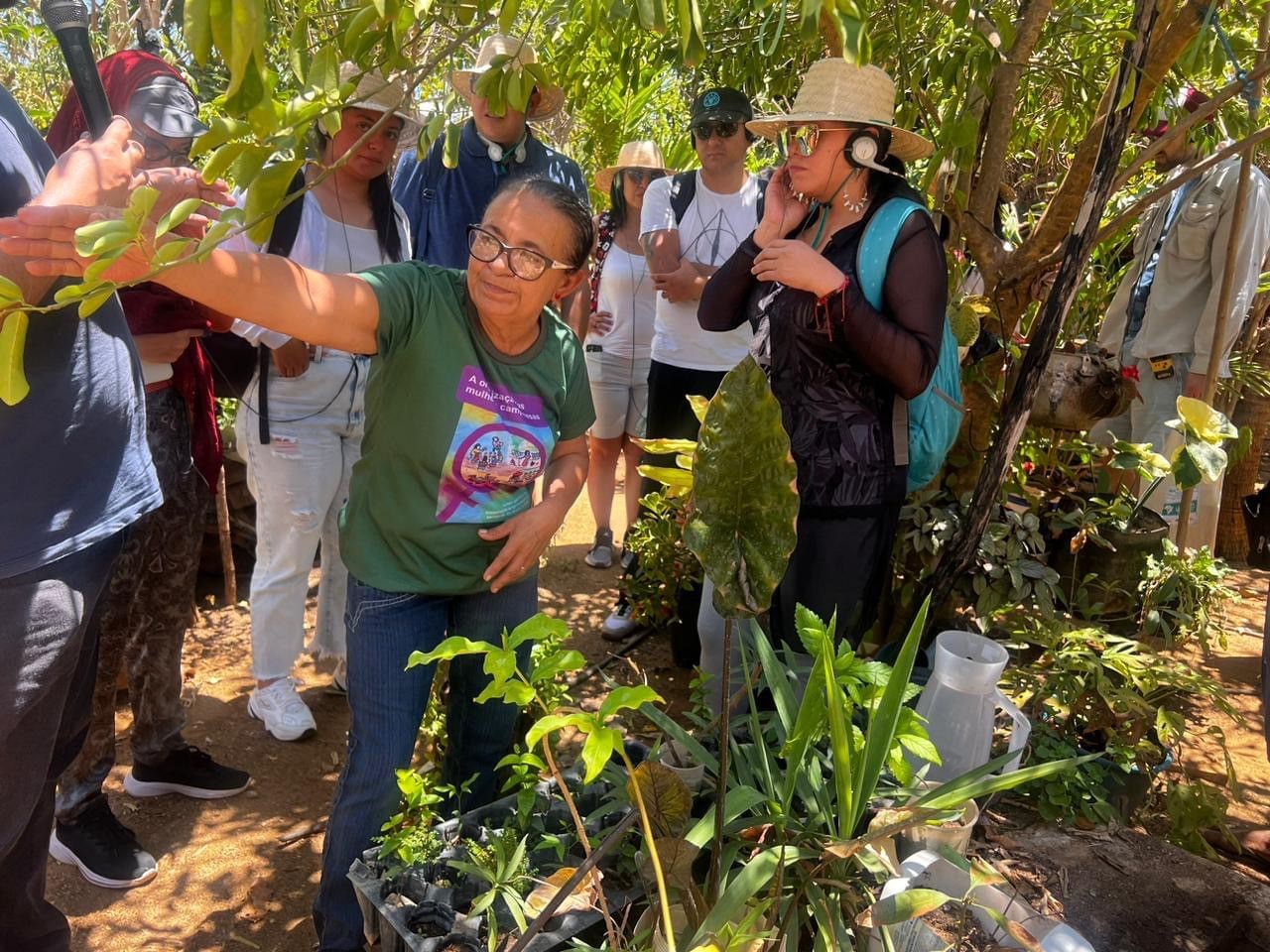
Next stop: the Tierra de Esperanza community in the municipality of Governador. The group meets Doña María Rita, a community leader who worked with other local women to find solutions to water shortages afflicting their region. The women constructed cisterns and installed gray water reuse systems, participating actively in all stages from construction to community water management.
Access to water has allowed them to diversify their agricultural production with organic vegetable gardens and medicinal plants. Doña María Rita has also installed a more efficient cooking stove that burns less wood and charcoal, where she teaches other women about nutrition using local produce. Her leadership has motivated the participation of more women in community decisions. Her next goal is to implement a community seed bank to recover and preserve local agrobiodiversity.
Thursday, 20 October 2023
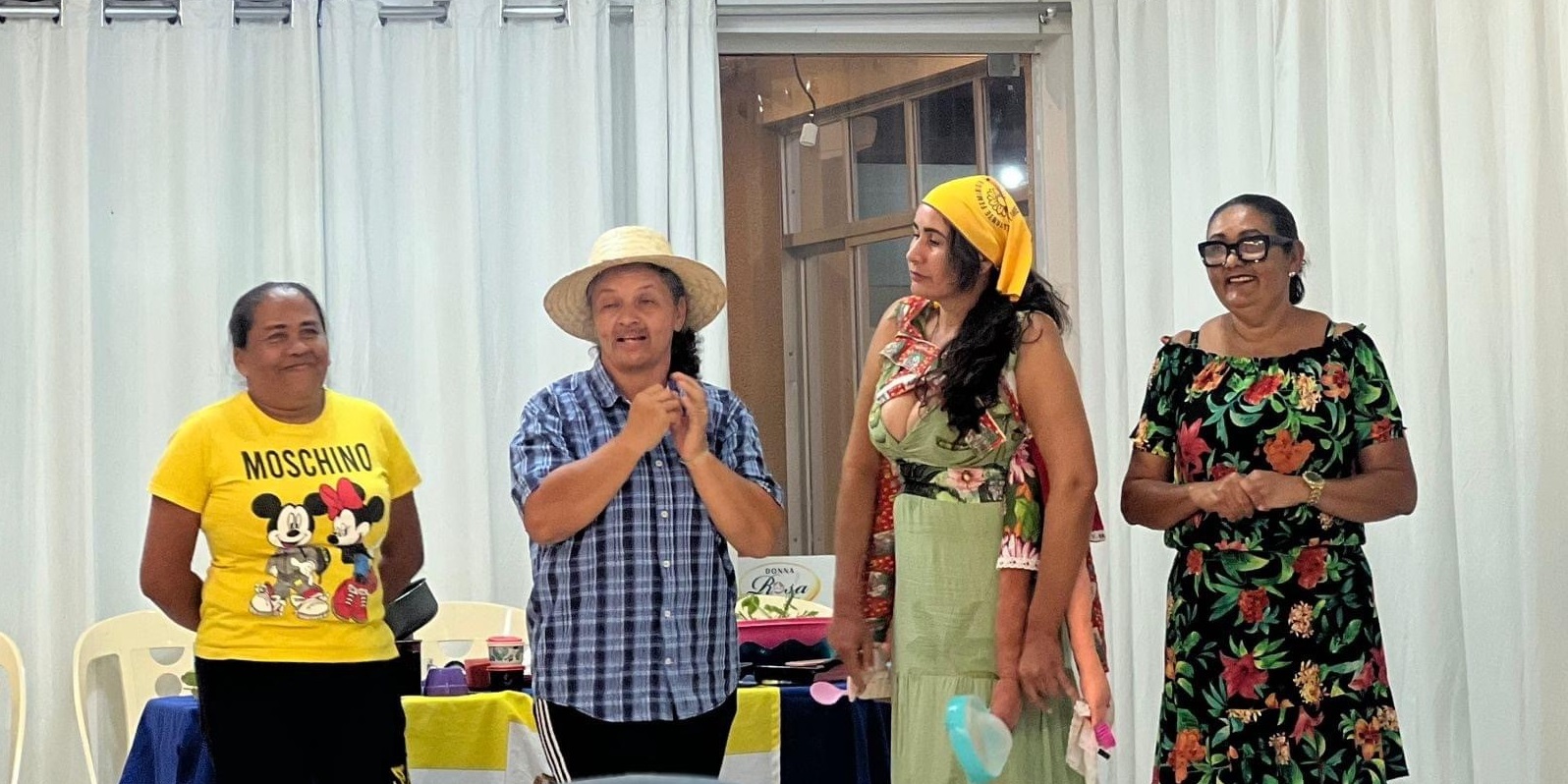
After a long journey, the delegation arrives in the community of Afogados de Ingazeira where they are welcomed by members of the Bom Sucesso Women’s Group with a play on fair division of household chores. The women play out their daily life in the countryside: taking care of the children, preparing food, cleaning the house, washing clothes – while their husbands watched football after coming home from work. The play emphasizes the overwhelming burden that rural women carry as they take on the unpaid domestic and care work, in addition to their productive tasks on the farm.
After the play, the group reflects on how such gender roles stem from past generations and how difficult it is to change deeply rooted mentalities. Raising awareness has been key to the group’s strategy to promote shared responsibilities within the family and encourage the transformation of discriminatory social norms that limit the potential of rural women.
Friday, 21 October 2023
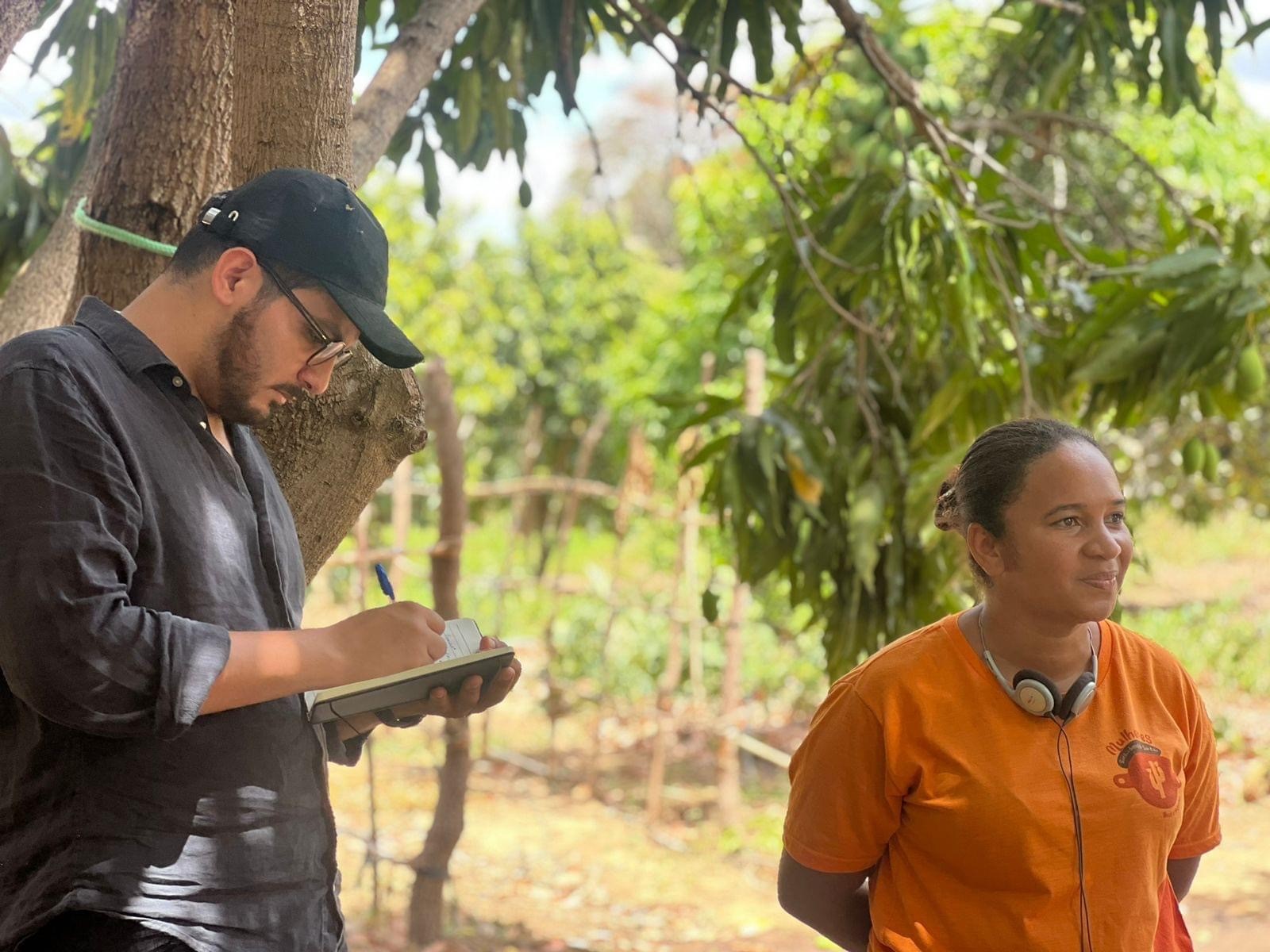
On the fifth day, the group divides into two. One group travels to Bom Sucesso in Pernambuco, where the delegates meet a group of women who have experienced a profound transformation by using “agroecological notebooks” to keep track of what they consume, donate, exchange and sell on a daily basis. The second group moves on to the community of Retiro, where it meets the women's group “Dreamers of the Sertão” who have also used the agroecological notebooks to record their production.
The simple act of keeping track of their productive work and making their contribution visible has strengthened the women’s self-esteem, given them a greater voice in decision-making and made them more valued in their communities. The notebooks have become a small but powerful seed that continues to empower women and their communities, highlighting how the most transformative change often begins with simple, everyday acts.
Saturday, 22 October 2023
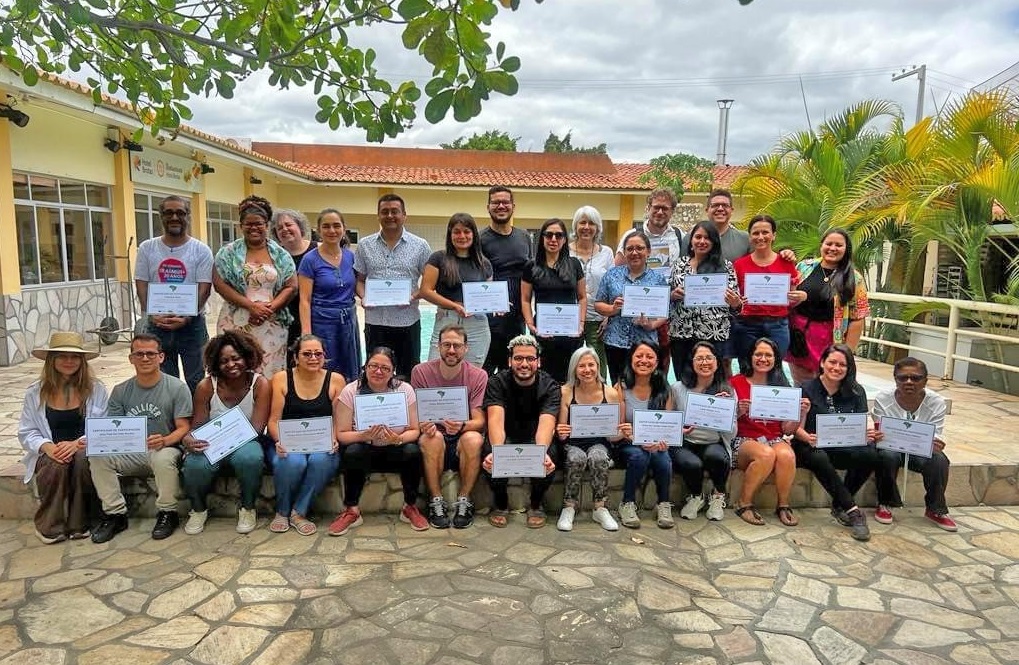
The Learning Route has come to an end. It has shown that it is possible to transform discriminatory gender norms and social relations when there is collective will and determined action. It has underscored the importance of women’s self-organization, of collective reflection to change traditional gender roles, of revaluing domestic and care work and economic contributions of rural women, and of strategic alliances between communities, civil society, productive organizations and governmental institutions.
For participants, an inspiring journey ends here as they start making their way back to their home countries. They carry with them the stories of women, men and communities who have managed to achieve gender transformative change, and they leave with a commitment to apply these seeds of change in other contexts.
Thank you to the women and men of northeastern Brazil who opened their hearts, their homes and their projects to show us that a more equitable and inclusive future is possible!
The “Learning Route on Gender Transformative Approaches to Achieving Food Security, Improved Nutrition and Sustainable Agriculture” was organized by Procasur, an international organization specializing in innovation and peer-to-peer knowledge sharing. The activity took place within the framework of the Joint Programme on Gender Transformative Approaches for Food Security and Nutrition (JP GTA), which is implemented by FAO, IFAD and WFP in collaboration with and through financial support from the European Union.
Image credits: @FAO/Andrea Vera
More information:
You may also be interested in:
Contacts:
- Fiona Funke, Knowledge Management & Communication Specialist, JP GTA: [email protected]
- JP GTA: [email protected]




